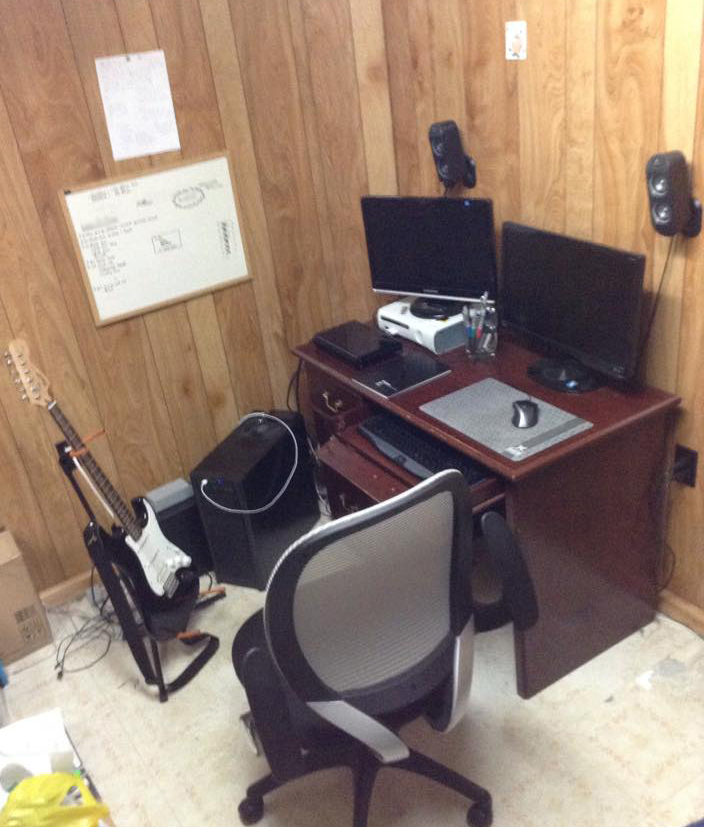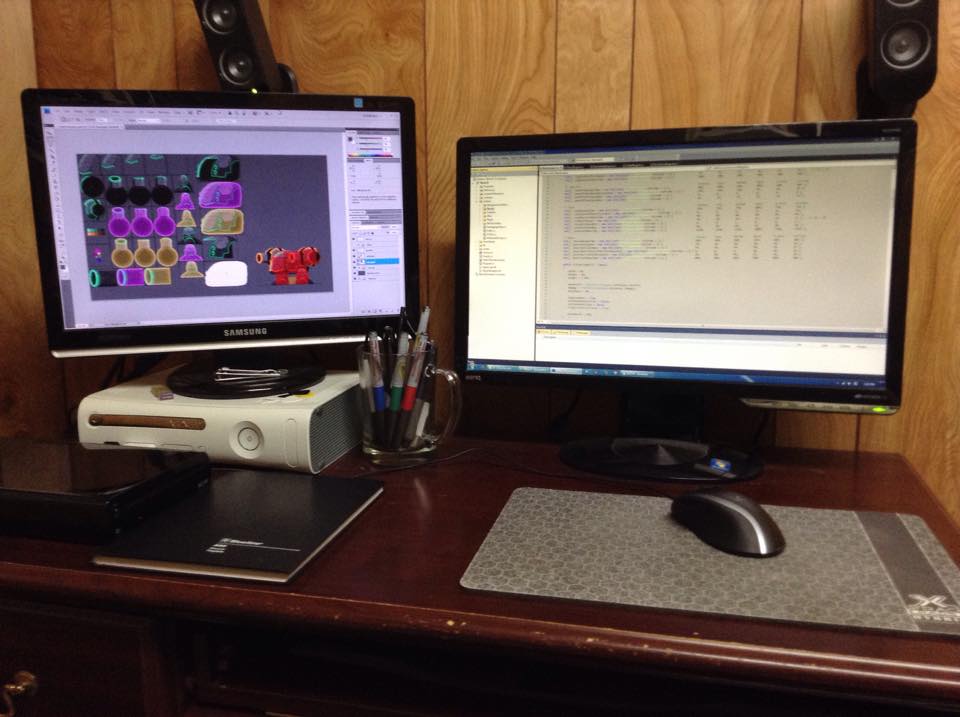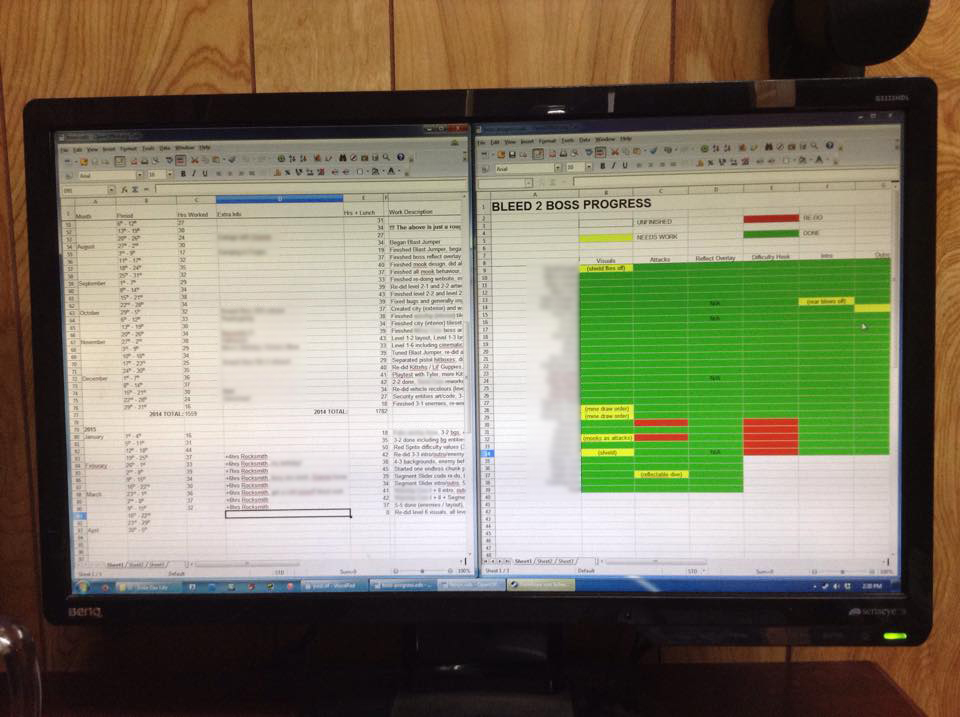Quick note: this week I got the second-last level of Bleed 2 to alpha!! Yeah, it happened really fast. I had a lot of work done on it beforehand. :D
Now, on to the topic:
I’ve been to a couple PAXes and they each had multiple panels — with multiple panelists! — all about a “day in the life of an indie dev.” To me, this suggests that the average person has a rather romanticized idea of what indie development is like. I’m sure that it varies (and maybe I just need to go to more swanky indie dev parties) but I thought I’d take a moment and describe what the experience is like for me, just in case you had any fanciful notions about it.
The simple truth is there’s not that much to it. Every day I wake up, eat breakfast, sit down at my workstation here and get to it.

I’d guess that I spent 50% of my time writing code, 25% making art, 15% playtesting, and the other 10% doing miscellaneous stuff like writing blog posts or checking emails (which I often forget to do anyways, oops!) Sometimes someone sends me a troubleshooting question, or occasionally wants to do an interview or whatever, but it’s mostly just sitting here, doing work.

You can see the hardware isn’t that much either — dual monitors make work a lot easier, but other than that it’s just a mouse and keyboard. I’ve also got a high-tech notebook (with state-of-the-art lined pages!) where I brainstorm ideas and plan things out, like difficult coding tasks or ideas for boss visuals. It’s been two years, so at this point it’s nearly filled with Bleed 2.
I actually own some other equipment, like a cheap tablet and a MIDI keyboard, but I rarely (if ever) use them. Pretty much all you need is right there in that pic, except for…

The whiteboard! I mainly keep a list of short-term goals and a count of my work hours on here. These help maintain sense of direction and motivation — it’s really satisfying filling in the hours, or wiping off an item as it’s completed. I aim to work a minimum of 35 hours a week, and I do my best to give myself Sundays off (other than blog posting) so I don’t totally burn out.
(The x’s are to indicate I did an hour of guitar practice that day — I hope to get my skills to a point where I can add real instruments to the Bleed 2 soundtrack… but we’ll see about that.)

I also keep a whole bunch of spreadsheets to manage myself and my project. For instance, I’ve got one for my progress on bosses, one for the hours I work each week, one for tracking the amount of money I’m spending (something that’s probably generally important, but I suspect even more so when you work for yourself) etc, etc, etc.
And… yeah. That’s really about it! Of course there are emotional highs and lows — you run into problems, you get something cool working, etc — but the vast, VAST majority of it is simply showing up and maintaining your work ethic (which can be a lot harder than it sounds) so you can get to the ultimate moment where you have a completed game that you can share with the world.
The glamorous life of indie game development: exposed!!
